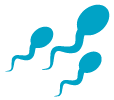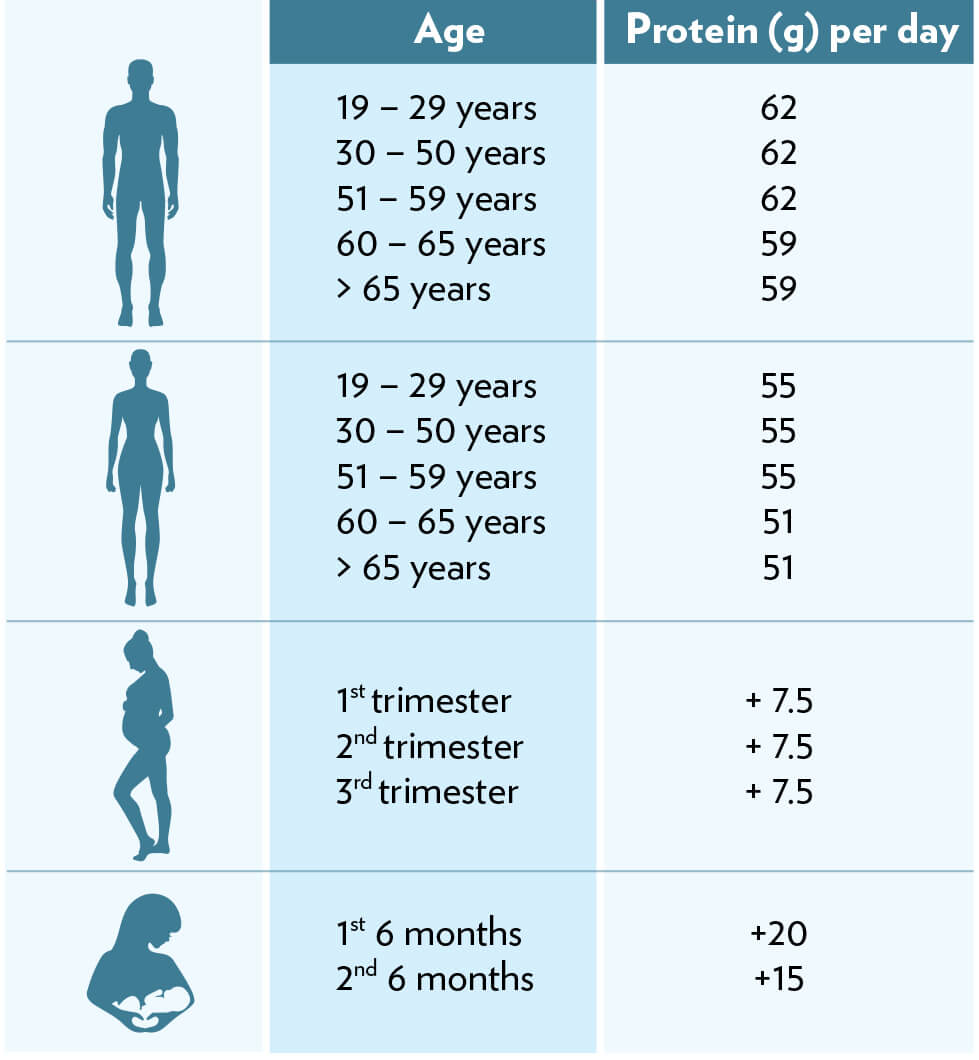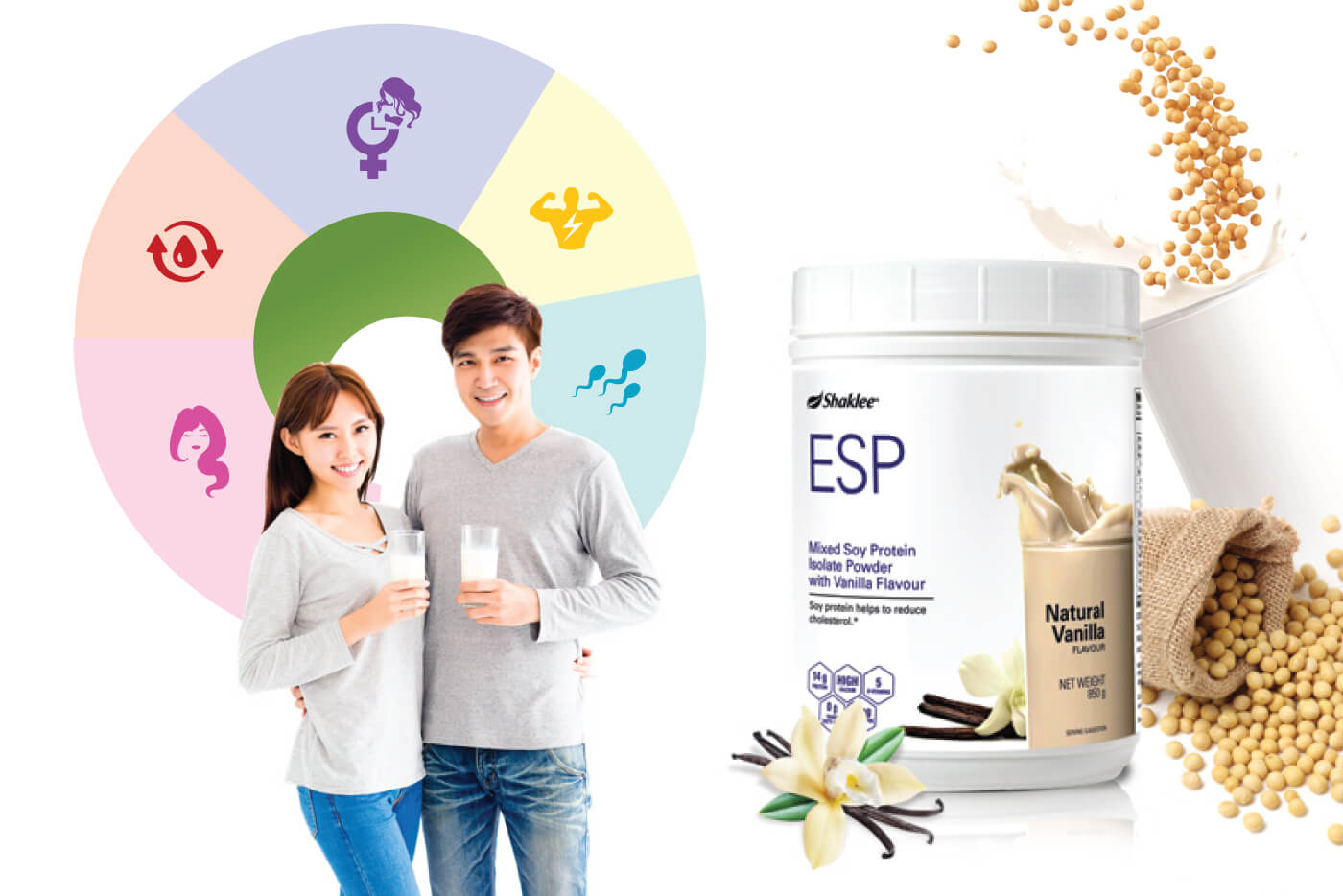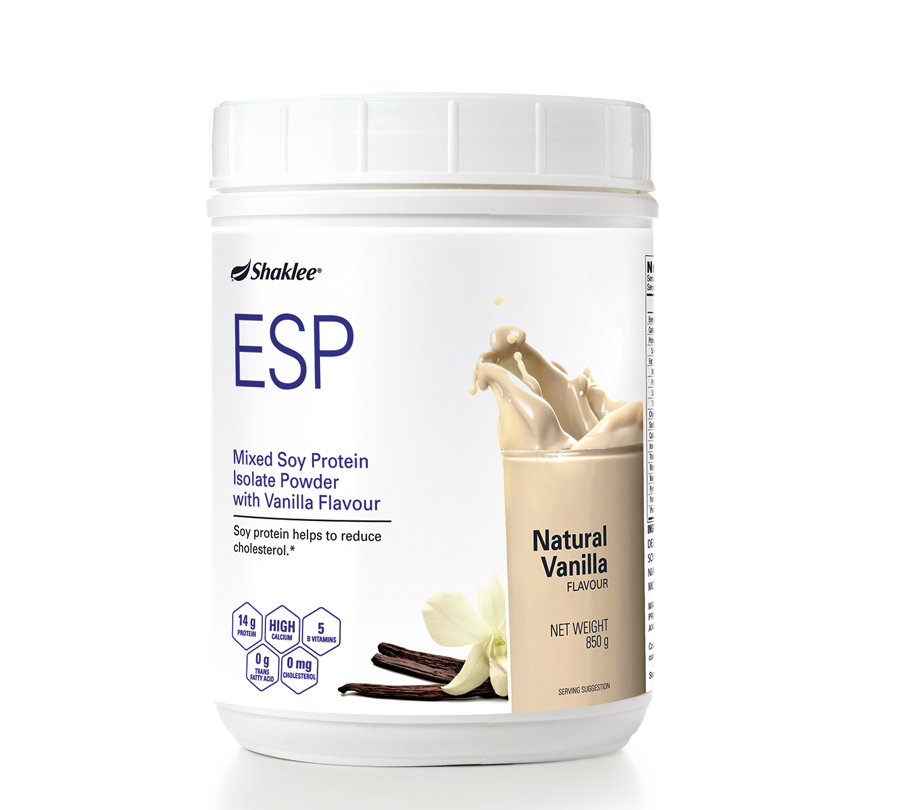Soy Protein is the Better Choice
Soy Protein is the Better Choice
Soy protein contains all 9 essential amino acids similar with animal protein source like meat, fish, poultry and dairy products. While our bodies cannot produce protein, we need it in our daily diet to build new cells, maintain tissues and synthesise new proteins for our body to function optimally.
Soy Is Nutritious
- Soy is full of protein, calcium, iron, zinc, potassium and other minerals that are good for the body.
- Contains compounds that help your body absorb calcium, iron and zinc.1,2,3
The Excellent Animal Protein Substitute
- Findings from a scientific research in 2010 recommended a shift in food patterns to a more plant-based diet4 for a healthier you.
- Soybean is the only plant-based food that contains all 9 essentials amino acids that makes them valuable for replacing meat and dairy foods in the diet, minus the cholesterol and fats!
Health Benefits of Soy Protein

Promote healthy skins, muscle, hair and nails.

Promote healthier blood circulation.5

Helps regulate hormonal balance during the transitional period of menopause and promote breast health.6

Boost your energy, endurance and performance.

Promote prostate health.7
How Much Protein Do You Need?
The amount of protein that you need varies, depending on your age, weight, workout habits and health conditions.

ESP – the Better, Healthier Choice!
- Provides 14g of Low Glycemic Index protein.
- PDCAAS (Protein Digestibility Corrected Amino Acid Score) score of 1.0
– highest value of protein digestibility and highest protein quality. - Contains 9 essential amino acids.
- Rich in calcium.
- Cholesterol free.
- Soy protein helps to reduce cholesterol.*
*Amount of soy protein recommended to give the lowering effect on the blood cholesterol is 25g per day.
References:
1. Murray-Koib LE, Weich R, Thell EC, Beard JL. Women with low iron stores absorb iron from soybeans. AM. J. Clinn. Nutr, 2003, 77, 180-4
2. Lonnerdal B, Bryant A, Liu X, Theil EC. Iron absorption from soybean ferritin in non-anemic women Am. J. Clinn. Nutr, 2006, 83, 103-7.
3. Heaney RP, Weaver CM, Fitzsimmons ML. Soybean phytate content: effect on calcium absorption. AM. J. Clinn. Nutr. 1991, 563, 745-7.
4. Department of Health and Human Services and U.S. Department of Agriculture. Dietary Guidelines for Americans Committee Report. 2010.
5. United Soybean Board. Nutrition Report 1999-2000.
6. Lock, M. Menopause in cultural context. Experimental Gerontology. 1994; 29(3-4): 307-317.
7. Wei, H et al. Inhibition of tumor promoter-induced hydrogen peroxide formation in vitro and in vivo by genistein. Nutrition and Cancer. 1993; 20:1-12.







